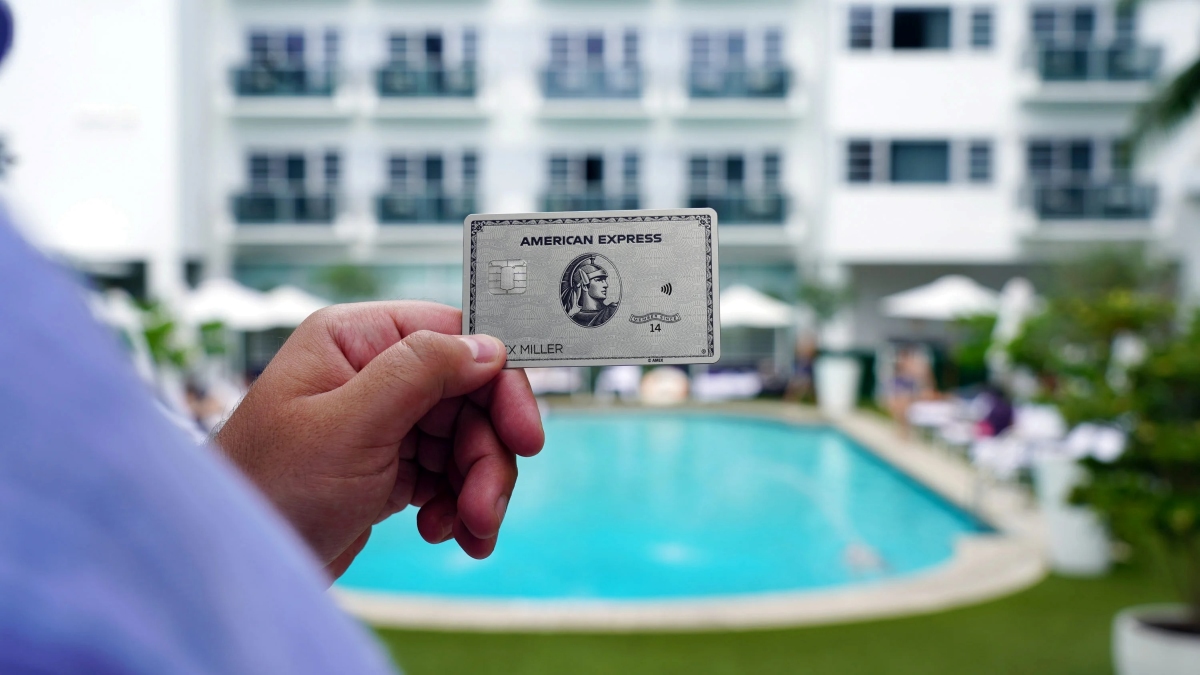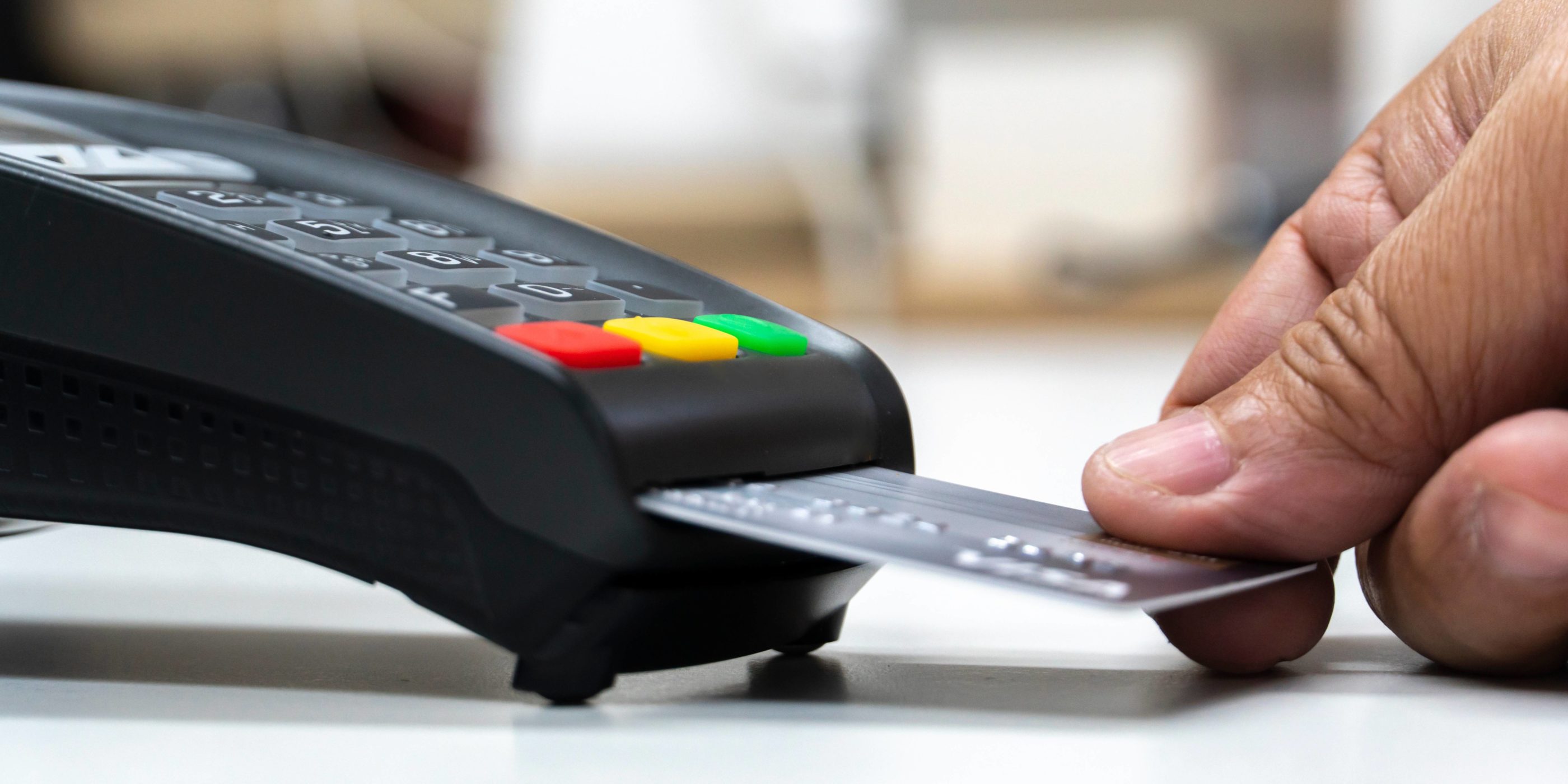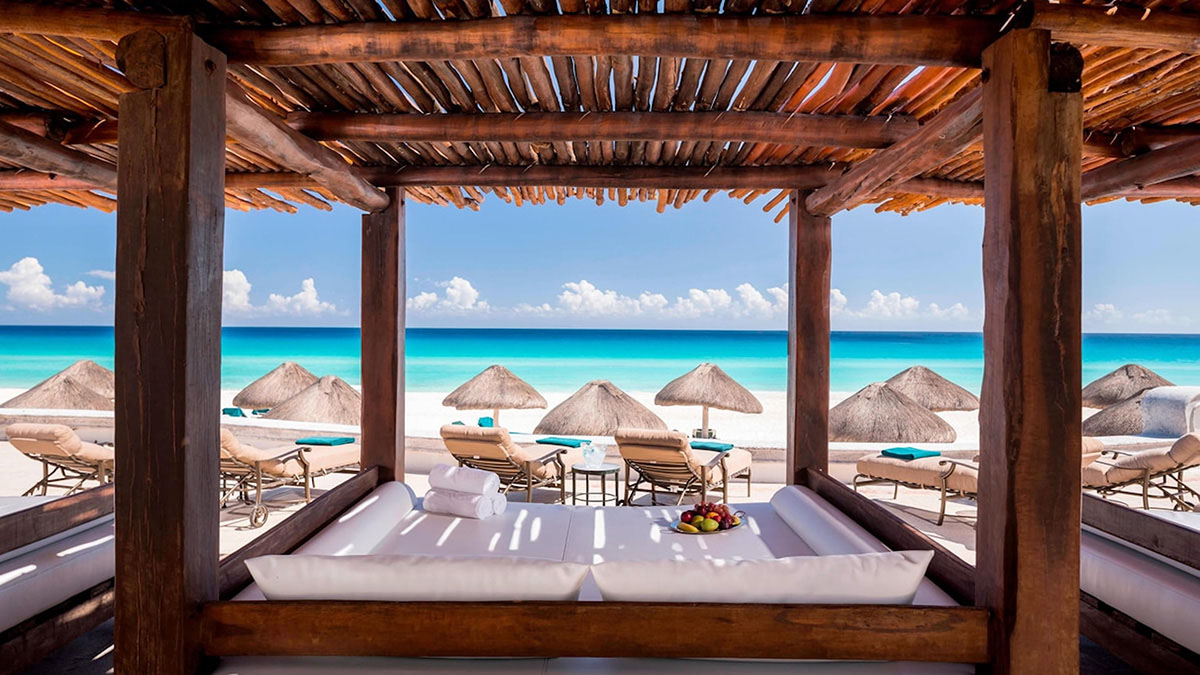

Finance
How Much Does Hotel Hold On Credit Card
Published: November 3, 2023
Discover how much hotels typically hold on your credit card and understand the impact on your finances. Learn what to expect when it comes to hotel credit card holds.
(Many of the links in this article redirect to a specific reviewed product. Your purchase of these products through affiliate links helps to generate commission for LiveWell, at no extra cost. Learn more)
Table of Contents
Introduction
When booking a hotel stay, you may have come across the term “hotel credit card hold” or “authorization hold.” These holds can sometimes be confusing and even frustrating, especially if you’re not familiar with how they work. Understanding what a hotel credit card hold entails and how it impacts your finances is essential for a smooth and stress-free experience.
In simple terms, a hotel credit card hold is a temporary hold placed on your credit or debit card to ensure that you have sufficient funds to cover any potential charges during your stay. It serves as a form of guarantee for the hotel, protecting against unpaid bills and incidental expenses.
Hotel credit card holds are a common practice in the hospitality industry, and they are primarily used to cover expenses like room charges, room service fees, mini-bar purchases, and any other additional services or incidentals you may use during your stay.
These holds vary in duration and amount, depending on the hotel’s policies and the length of your stay. While they are generally released once you check out and settle your final bill, it’s essential to understand the factors that can affect the hold’s amount and how to handle them effectively.
In this article, we’ll explore how hotel credit card holds work, the factors that influence their amount, and provide tips on how to deal with them. We’ll also discuss strategies to avoid unnecessary holds and potential complications that may arise if you’re not prepared.
By the end of this article, you’ll have a comprehensive understanding of hotel credit card holds, enabling you to navigate these situations confidently and enjoy a seamless hotel experience.
Understanding Hotel Credit Card Holds
A hotel credit card hold, also known as an authorization hold, is a temporary transaction that places a hold on a certain amount of funds on your credit or debit card. The purpose is to ensure that you have enough available credit or funds to cover any expenses or charges that may occur during your stay at the hotel.
Hotel credit card holds are standard practice in the hospitality industry and serve as a guarantee for the hotel. They help protect against potential unpaid bills and incidental expenses that you may incur during your stay. These expenses can include room charges, room service fees, mini-bar purchases, and any other additional services or incidentals.
It is important to note that a credit card hold is not an actual charge. The funds are placed on hold temporarily, without being deducted from your account. The hold amount will not be available for other transactions during this period but will be released or unfrozen once you settle your final bill.
The duration of a hotel credit card hold can vary. Some hotels may hold funds for a few hours, while others may hold them for several days after your check-out. The hold duration is typically determined by the hotel’s policies and the payment card network’s guidelines.
Understanding hotel credit card holds is crucial because they can impact your available credit or funds. If you have a low credit limit or a tightly managed budget, it’s essential to be aware of these holds to avoid unnecessary complications or overdrawing your account.
It’s important to remember that hotel credit card holds are a standard practice and are not specific to any particular hotel chain or property. Whether you’re staying at a budget hotel or a luxury resort, you can expect to encounter credit card holds during the check-in process.
Now that we have a basic understanding of hotel credit card holds, let’s take a closer look at how they work and what factors can affect the amount of the hold.
How Hotel Credit Card Holds Work
Hotel credit card holds work by temporarily reserving a specific amount of funds on your credit or debit card to cover potential expenses during your stay. Here’s a step-by-step breakdown of how the process typically works:
- Reservation and Check-In: When you make a hotel reservation, you usually provide your credit or debit card information to secure the booking. Upon arrival at the hotel, you’ll be asked to present the same card for verification purposes.
- Authorization Request: At the time of check-in, the hotel will request authorization from your card issuer to place a hold on a certain amount of funds. The authorization request includes the estimated cost of your stay, as well as an additional amount to cover potential incidentals.
- Hold Placement: Once the authorization request is approved, the hotel will place a hold on your card for the authorized amount. This hold is a temporary freeze on those funds, preventing you from using them for other transactions during your stay.
- Available Credit or Funds: The amount of available credit or funds on your card will be reduced by the hold amount. This means that you won’t be able to spend or access those funds until the hold is released.
- Incidentals and Charges: During your stay, any charges or expenses you incur will be added to your room bill. This can include room service, dining, minibar items, or other services offered by the hotel.
- Final Settlement: When you check out, the hotel will process the final settlement, which includes the actual charges incurred during your stay. The authorized hold amount will be adjusted based on the final bill. If the actual charges are lower than the initial hold, the difference will be released, and the funds will be made available again.
- Hold Release: Once the final settlement is processed, the hold on your card will be released. The released funds will become available for other transactions, and the hold will no longer affect your available credit or funds.
It’s important to keep in mind that the release of the hold may not happen immediately after check-out. Depending on the hotel’s policies and the processing time of your card issuer, it may take a few days for the hold to be released and for the funds to become fully available again.
Now that we understand how hotel credit card holds work, let’s explore the factors that can influence the amount of the hold.
Factors Affecting the Amount of Hotel Credit Card Holds
The amount of a hotel credit card hold can vary depending on several factors. It’s essential to be aware of these factors to anticipate the potential impact on your available credit or funds. Here are the key factors that can affect the amount of a hotel credit card hold:
- Length of Stay: The duration of your stay is a significant factor in determining the hold amount. Hotels often calculate the hold based on the expected total cost of your stay, including room charges, taxes, and any additional services you might use. The longer your stay, the higher the hold amount is likely to be.
- Room Rate: The rate you pay for your room can influence the hold amount. Hotels may set different hold amounts based on room rates, with higher rates generally resulting in higher holds. If you book a discounted or promotional rate, the hold might still be based on the hotel’s standard room rate.
- Hotel Policies: Each hotel has its own policies regarding credit card holds. Some hotels have set amounts for different room types, while others may calculate holds based on a percentage of the expected charges. Familiarize yourself with the specific policies of the hotel you’re staying at to understand what to expect.
- Additional Services: Any additional services or amenities you use during your stay can contribute to the hold amount. For example, if you order room service, use the hotel spa, or make use of other paid facilities, the cost of these services may be included in the hold to ensure sufficient funds for payment.
- Destination and Season: The location and time of year can impact the hold amount. Hotels in popular tourist destinations or during peak seasons may require higher holds due to increased demand and potential for higher expenses. Similarly, resorts or hotels with luxury amenities may have higher hold amounts to account for these added features.
- Personal Finances: Your credit history, credit limit, and available funds can also affect the hold amount. If your credit card limit is lower or your available funds are limited, the hold may be adjusted accordingly. It’s important to ensure you have enough available credit or funds to cover the hold to avoid any complications during your stay.
Understanding these factors can help you anticipate and plan for the potential impact of a hotel credit card hold. Being prepared and having a clear understanding of your financial situation will ensure a smooth and hassle-free experience during your hotel stay.
Now that we know the factors that influence the amount of a hotel credit card hold, let’s explore some tips for dealing with these holds effectively.
Tips for Dealing with Hotel Credit Card Holds
Dealing with hotel credit card holds can be a bit tricky, but with some knowledge and preparation, you can navigate the process smoothly. Here are some helpful tips to keep in mind:
- Understand the Hotel’s Policies: Familiarize yourself with the hotel’s credit card hold policies before your stay. Check their website or contact the hotel directly to get specific information about hold amounts and duration. This will help you anticipate any potential impact on your available credit or funds.
- Communicate with the Hotel: If you have any concerns or questions regarding the hotel credit card hold, don’t hesitate to reach out to the hotel’s front desk or customer service. They can provide you with clarity and address any specific concerns you may have.
- Use a Credit Card Wisely: Consider using a credit card with a higher credit limit for your hotel stay. This will allow you to have more available credit to accommodate the hold amount without affecting your other spending needs. It’s also a good idea to have a backup card in case the primary card has any issues.
- Track Your Expenses: Keep track of your expenses during your stay to ensure they align with the hold amount. Double-check the charges on your invoice before settling the final bill. If you notice any discrepancies, notify the hotel staff immediately to resolve the issue.
- Be Mindful of Incidentals: Be aware of potential incidental charges that can contribute to the hold amount, such as minibar items, in-room movies, or spa services. Consider using cash instead of your credit card for these additional expenses to minimize the impact on your available credit.
- Plan for Hold Release Time: Keep in mind that it may take a few days for the hold amount to be released after your check-out. Avoid making any large or critical purchases immediately after your stay, as the released funds may not be immediately available for use.
- Monitor your Account: Check your credit card statement or online account regularly to ensure that the released funds are properly reflected. If you notice any discrepancies or delays in the release of the hold, contact your card issuer or the hotel to address the issue promptly.
By following these tips, you can minimize the impact of a hotel credit card hold and ensure a smooth experience during your hotel stay. Remember, these holds are a standard practice in the industry, and with proper knowledge and preparation, they should not cause any significant inconvenience.
Now, let’s explore some strategies to avoid hotel credit card holds altogether.
How to Avoid Hotel Credit Card Holds
While hotel credit card holds are a common practice, there are a few strategies you can employ to potentially avoid or minimize the impact of these holds. Keep in mind that not all options may be feasible or practical in every situation. Here are some approaches to consider:
- Prepay for Your Stay: Some hotels offer the option to prepay for your stay in full. By doing so, you can potentially avoid the need for a credit card hold altogether. However, this may not be available for all hotels or reservation types, so check with the hotel to see if this option is possible.
- Use a Debit Card: If you prefer not to use a credit card or are concerned about the impact on your available credit, you can consider using a debit card. Debit card transactions are typically processed immediately, so the funds are deducted from your account right away. This can reduce the need for a hold, but keep in mind that the funds will still be reserved until the final bill is settled.
- Negotiate with the Hotel: In some cases, if you have a good relationship with the hotel or are a loyal customer, you may be able to negotiate the hold amount or find alternative arrangements. Reach out to the hotel in advance and explain your situation to see if they can accommodate your request.
- Provide a Cash Deposit: Some hotels may accept a cash deposit instead of a credit card hold. By providing a cash deposit, you can avoid any impact on your available credit or funds. However, keep in mind that this option may require you to have access to a significant amount of cash, and the deposit may need to be returned at the end of your stay.
- Opt for a Lower Room Rate: If a specific room rate is causing a higher credit card hold, you can consider opting for a lower room rate. This can be especially helpful if you’re not planning to utilize any additional services or amenities that may be included with higher room rates.
- Seek Rewards Program Benefits: If you’re a member of a hotel rewards program or have a co-branded credit card, you may be entitled to certain benefits or privileges. Check if these programs offer any exemptions or reduced hold amounts for their members, as this can help mitigate the impact of the hold.
Remember that each hotel’s policies may vary, and not all of these options may be available or suitable for your specific circumstances. It’s important to contact the hotel directly to discuss your preferences and explore any alternatives they may provide.
By using these strategies, you may be able to avoid or minimize the impact of hotel credit card holds. However, it is important to consider the potential drawbacks or limitations of each approach and choose the best option based on your personal circumstances and preferences.
Now, let’s summarize the key points we’ve covered in this article.
Conclusion
Hotel credit card holds are a standard practice in the hospitality industry, serving as a way to ensure payment for potential expenses during your stay. By understanding how hotel credit card holds work and the factors that can affect their amount, you can navigate the process with confidence and minimize any inconveniences.
When dealing with hotel credit card holds, it’s important to communicate with the hotel, track your expenses, and be mindful of incidentals to ensure a smooth check-out process. Additionally, planning for the hold release time and monitoring your account afterwards will help avoid any surprises or delays.
If you prefer to avoid hotel credit card holds altogether, options such as prepaying for your stay, using a debit card, negotiating with the hotel, providing a cash deposit, opting for a lower room rate, or utilizing rewards program benefits may be viable alternatives to explore. However, it’s crucial to check with the specific hotel for their policies and availability of these options.
Remember that hotel credit card holds are temporary and the funds are released once you settle your final bill. By understanding and preparing for these holds, you can enjoy your hotel stay without unnecessary stress or financial complications.
Ultimately, with proper knowledge, communication, and planning, you can navigate hotel credit card holds with ease, ensuring a pleasant and hassle-free experience during your travels.














